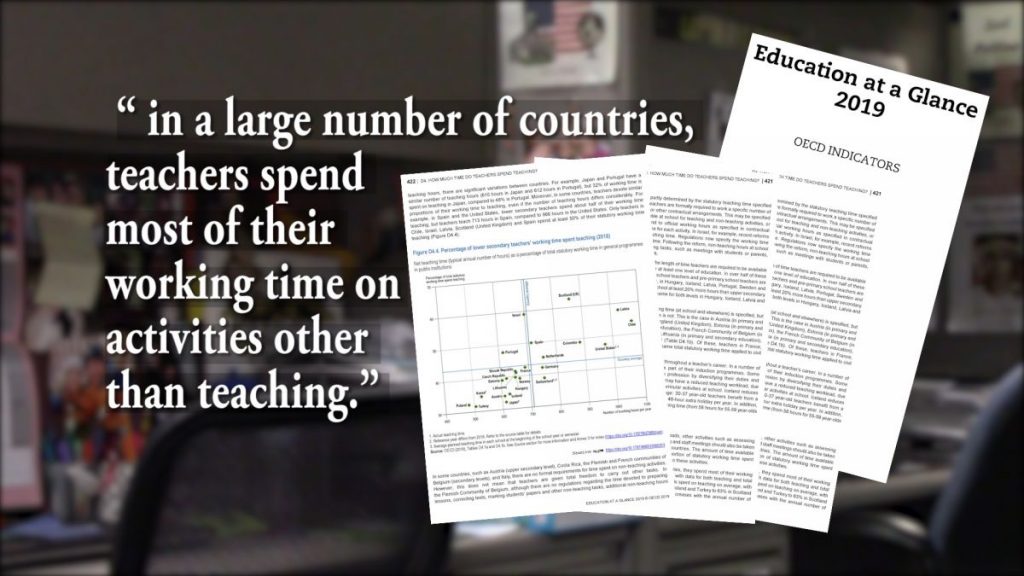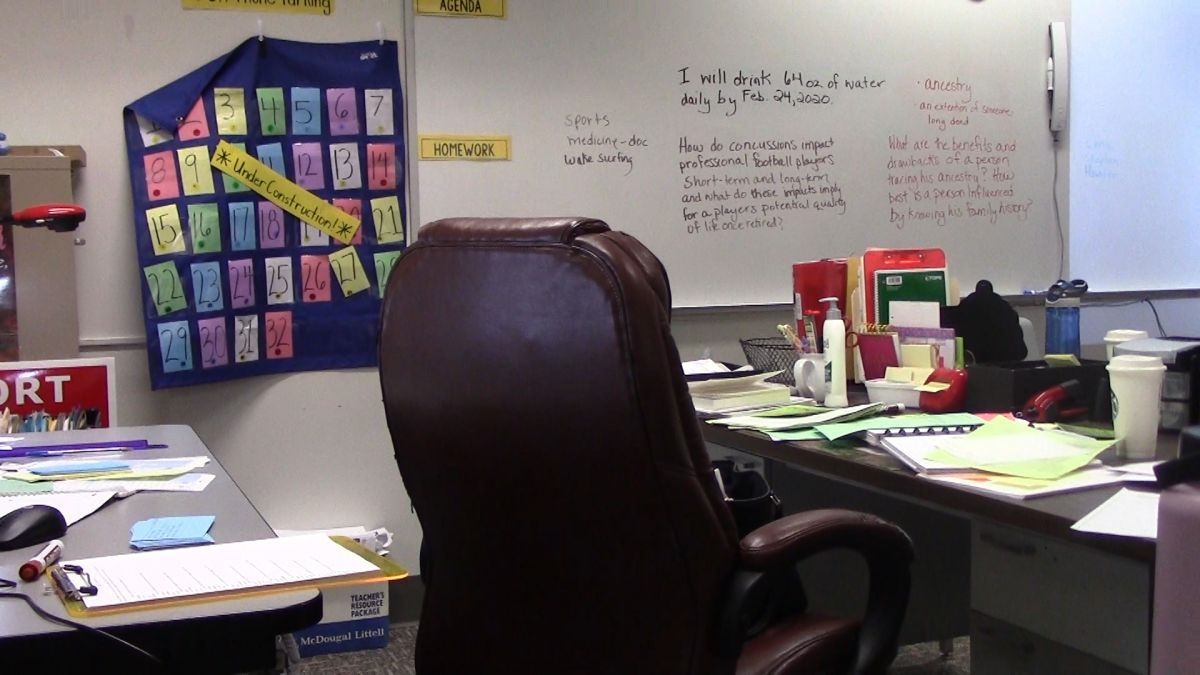How is your English class?
The average grading load for a Sophomore English teacher is roughly 8,000 pages of student composition that have to be graded each year. And not only do these papers need to be assigned a grade, but teachers are also expected to provide feedback and comments on the assessment.

Mrs. Pernere, known more commonly as KP, teaches English 10 classes that range anywhere from 28 to 31 students. “English is such a different beast as far a grading goes because you have essays and you have to go through even short-response questions,” KP says, “So when you have even bigger class sizes, if you get behind, you’re just done.”
KP’s concern about class sizes relation to a teacher’s performance coincides with the Nation Council for Teachers of English recommendations on class sizes. According to NCTE “Class size is a major factor in student learning, and students in smaller classes perform better.”

Research also suggests that teachers of smaller classes, with lighter workloads, are more likely to be retained by their school. The NCTE also states that quality teachers are the most essential aspect of student success. Thus if English teachers are smothered by stressful loads of grading, the research predicts that teachers are more likely to leave their profession altogether, leaving schools and students with less qualified teachers to choose from.
“On weekends I was grading all to get papers back in 2 weeks. And then to get more and do it all over again. I could never go home and relax. I could never spend weekends doing whatever I wanted to do. And at school, I felt like I was drowning under it all,” KP recalls, “ But it still takes a lot of time and it like weighs on your shoulders when you don’t have it finished so you want to get it done in a timely manner still because it gets very heavy.”
Mr. Coffee, an AP English teacher also expressed the same amount of stress of grading during his personal time. “For the past 5 or 6 years I’ve taught primarily a composition class, that course load is pretty expensive,” he stated, “so weekends are dedicated to trying to get as many of those done as possible, and evenings certainly. So it certainly impacts personal life.”

Class sizes in all subjects have increased since the 2008 Recession, when public schools lost funding due to a lack of property value, according to the NCTE. With an increase in class sizes, it may seem clear that the easiest approach to solving an issue of overcrowded classrooms is to reverse the trend by making more classes of smaller students.
But experts suggest that simply placing fewer students per class will not solve the issue, but instead, the heavy workload of English teachers would be best relieved if teachers were given more in-school paid time to grade, prepare lessons, and collaborate with other teachers.
With Penn’s current block schedule where teachers give instruction for 3 out of their 4 blocks a day, many teachers like Mr. Coffee and KP find themselves not having enough time to grade, nor prepare lessons, nor conference with students individually.
“The majority of my prep time is just spent grading. And even if I only spend 6 minutes on just one essay. And so if I’ve got 31 kids in a class and 28 kids in a class, that a lot of time, you don’t get through a lot in a single prep period.” KP explained.

According to the OECD, an organization tasked with researching the best ways to stimulate economic development, “ in a large number of countries, teachers spend most of their working time on activities other than teaching.” These counties, such as Japan, Korea, and many Scandinavian counties, whos teachers spend an average of 24% of their paid time instructing, produce better academic outcomes among students according to a 2018 PISA report.
Penn High School formerly provided teachers of English with additional grading and preparation time, according to Mr. Coffee. “It was 10 maybe 12 years ago, teachers of composition were frequently assigned study halls so that they would have one less class so they could handle the workload, the paper load.”
“English teachers need more time to grade,” KP expressed. “If we don’t get more time to do the heavier work of grading, then they need some other form of compensation.”

In order to provide English teachers with only one more study hall, Penn High School would need to hire 5 more English teachers for the upcoming school year. But creating five new teaching positions requires substantial funding, and since many teachers have already been calling for higher teacher pay, a rapid increase of teachers could make those higher salaries more difficult to achieve. Ultimately the issue of smaller classes, teacher pay, and paid grading time, come down to how the school administration budgets their own funding.

